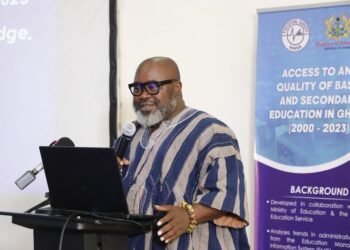As part of measures to improve revenue mobilization beyond tax revenues, the government seem to be looking at one of the areas that many people believe has a huge potential to bring in more revenues to government’s coffers, Non-Tax revenues.
Within this revenue component, the government plans to raise a total of GH¢468 million from property rate in the 2022 fiscal year. Even though loopholes exist in the collection of property rates in the country, the government is counting on the implementation of the Unified Common Platform for Property Rate Administration which is supposed to take effect from today, January 1, 2022 to help meet this target.
According to Finance Minister, Ken Ofori-Atta, property rates have the potential to increase revenue mobilization for MMDAs and release resources for provision of basic infrastructure as well as the needs of localities.
“Property rate assessment and collection poses a challenge to most MMDAs and is fraught with inefficiencies. Government, through the Ghana Revenue Authority will from January 2022, assist the MMDAs to implement a common platform for property rate administration to enhance Property rate collections and its accountability. To ensure cost recovery by Government in providing the infrastructure for the collection of the Property Rate, a sharing ratio will be agreed with the Assemblies”.
Ken Ofori-Atta
The proposed Unified Common Platform for Property Rate Administration is subject to review every 5 years. Non-Tax revenues amounted to GH¢6.08 billion in the first nine months of 2021 as compared to tax revenues of GH¢37.15 billion. This means attempts to improve this revenue component is laudable.
Concerns over the common platform
However, the Local Governance Network, the umbrella body of civil society organizations in the local governance, argued that the proposed platform which now means the government will be collecting property rates on behalf of the Assemblies will be counter-productive and will defeat the decentralization agenda. The Network urged the government to consider better options to make fiscal decentralization more practical and sustainable.
The Local Government Act 936 (Act 2016) mandates the assemblies to plan and raise their own revenues to undertake development in the local areas. The Network stressed that “property rate is a major source of revenue from MMDAs in Ghana and the status quo must remain”.
According to the Network, the main challenge facing the collection of property rates in the country is lack of reliable database. It noted that the proposed platform will be a setback to the gains the assemblies have made overtime.
In October 2021, the Senior Presidential Advisor, Yaw Osafo-Maafo noted that Ghana only realized 0.03% of GDP from property rates. Yet, taking over the collection of property rates under the sharing arrangement is not the way to go. The central government should rather concentrate on strengthening the capacities of the MMDAs to collect the property rates. This can be done through creating the enabling environment for property identification and valuation of properties to ensure efficient collection.
Just as the Network argued, the proposed move will further derail the gains made in the country’s fiscal decentralization efforts which seeks to reduce the workload on the central government and also the bureaucracy involved in getting funds for minor projects within the local assemblies.
READ ASLO: Simple Steps to Actualizing your New Year Resolution




















